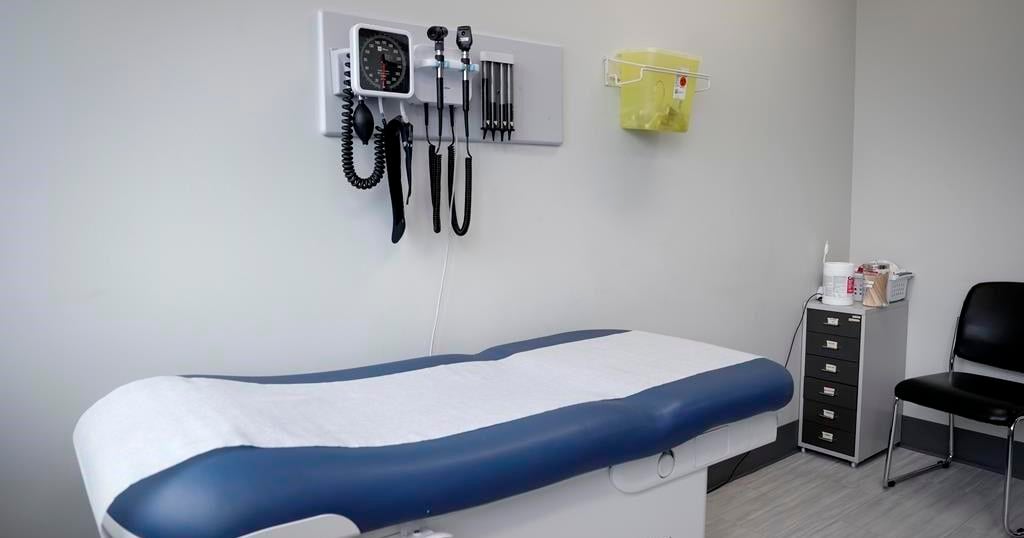EDMONTON – In Hinton, Alta., an industrial town in the shadows of the Rockies, residents left without a doctor to write prescriptions face a three-hour drive to Edmonton to try their luck at a walk-in clinic.
Hinton is down to eight family physicians, half of what’s needed for the town of 10,000. And of those remaining, some are working part time or making retirement plans.
The town council has formally declared it a health crisis and is looking at dipping into its own pockets to find $500,000 to keep the physicians from closing up shop.
Mayor Nicholas Nissen said he’s disappointed the town may be on the hook for something that’s not a municipal responsibility.
“It’s absolutely ridiculous that municipal taxpayers are paying three times now — in our community — for health care that half of them don’t even have access to,” Nissen said in an interview.
Declaring the crisis doesn’t bring access to emergency funding or extra resources. But Nissen said it sends a message about the gravity of the problem.
Even though health care falls under provincial authority, Nissen said rural or remote communities have long been taking matters into their own hands to maintain access, and Hinton’s challenges are common across the country.
“This story is not about Hinton,” said Nissen.
“We’re not the only community in this boat.”
The $500,000 from the town would keep the lights on at the local medical clinic to help family physicians who can’t bill at the clinicbecause they’re too busy caring for patients at the hospital emergency room or seniors’ lodges.
That money may have to come out of general operating funds, emergency management reserves or through taxation. Nissen said the town is going to ask the province to reimburse the amount.
In an interview, Alberta Health Minister Adriana LaGrange did not commit to making Hinton whole.
“I’d have to look at it and look at it in the context of the broader picture and the supports that we’re providing to not just Hinton but all communities across the province,” said LaGrange.
“What Hinton or any other community wants to do to make their community more attractive for a physician to come, that really is something that communities choose for themselves.”
Her office said the province recently recruited one physician to Hinton and is working to attract five more.
Late last year, Premier Danielle Smith promised her United Conservative Party government would ensure every Albertan has a primary health provider by the next election in 2027.
It has funnelled cash from federal health-care transfers towards stabilizing family practices.
It has introduced a new funding model for nurse practitioners to take on more primary care patients and is currently negotiating a new pay model for family doctors.
It’s also working to streamline the sponsorship of international medical graduates.
Laudable efforts, said Nissen. “(But) those sorts of solutions have a timeline to them that is longer than what our system will bear.”
Tyler Gandam, president of Alberta Municipalities, which represents many of the cities and towns that serve as health-care hubs for more rural and remote communities, said municipally funded subsidies and incentives for doctors are increasingly common.
Gandam said depending on how much traction Hinton gets, other municipalities could soon be making similar calls to the provincial government to pony up.
“This is an opportunity for (the provincial government) to start working more closely with the communities and figure out ways to get health-care providers (and) doctors, to those communities, without communities having to subsidize,” Gandam said.
This report by The Canadian Press was first published July 4, 2024.

























